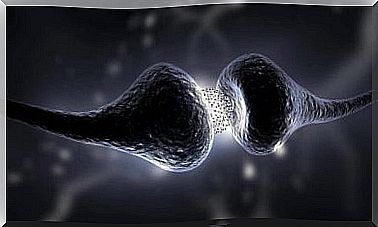Hypothyroidism: Can It Be Improved With Food?
To stimulate the production of thyroid hormones and prevent hypothyroidism, in addition to following the appropriate treatment, some foods can be included in the diet. We tell you what they are.

Hypothyroidism is a disorder that occurs when the thyroid gland becomes weak and hormone secretion decreases. As a consequence, a series of symptoms appear, since this hormonal activity is responsible for regulating the metabolic, neuronal and cardiocirculatory reactions of the whole body.
Apparently, its development could be related to poor diet, exposure to toxins, stress and other unhealthy habits that affect overall health. However, there are some foods that can be included in the diet and others that should be avoided to help the proper functioning of this gland. We tell you what they are.
What are the symptoms of hypothyroidism?

A person who develops this disease gradually presents several changes in his body due to hormonal imbalance. According to a Mayo Clinic publication, these are the most common signs and symptoms:
- Dry Skin.
- Depression.
- Hoarseness.
- Constipation.
- Weight gain.
- Poor memory
- Muscular weakness.
- Swelling of the face
- Slow heart rate
- Hair thinning.
- Enlarged thyroid gland (goiter).
- Muscle pain, tenderness, and stiffness.
- Increase in the level of cholesterol in the blood.
- Joint pain, stiffness, or swelling.
- Irregular or heavier menstrual periods than normal.
Are there foods that help control hypothyroidism?
After receiving the diagnosis of hypothyroidism, it is necessary to make some changes in the diet to avoid excessive weight gain and other consequences, due to the decrease in thyroid hormones.
On the other hand, although a change in diet alone is not enough to improve thyroid function, there are some foods that could be effective to control disorders of this gland, while following the indications of the treating physician. and they try to maintain other good habits of life.
Foods rich in iodine

Many cases of hypothyroidism are due to deficiency. In relation to this, a publication of the National Institutes of Health indicates that a person with iodine deficiency does not produce enough of the thyroid hormone.
For its part, the daily need for this mineral is 150 micrograms per day for adults and adolescents, 220 for pregnant women and 290 for lactating mothers. These amounts can be obtained through the consumption of certain foods, such as the following:
- Iodized salt.
- Milk, yogurt and cheese.
- Grain-based products, such as breads and cereals.
- Fish such as cod and tuna, seaweed, shrimp, and other shellfish.
- Fruits and vegetables (although the amount depends on the iodine in the soil where they grew).
However, it is important to clarify that consuming a lot of iodine could cause the opposite effect, and suppress the activity of the thyroid gland.
Selenium
A balanced diet that contains foods rich in selenium, such as Sunflower seeds or Brazil nuts can be beneficial for the proper functioning of the thyroid.
In fact, a study published in the International Journal of Endocrinology suggests that selenium has a direct relationship with hypothyroidism, and its consumption, through food or supplements, is important not only to prevent disease but also to maintain good health in general.
Thyroxine
Thyroxine is a type of hormone produced by the thyroid gland, which helps control metabolism and growth. This is found in the following foods:
- Wheat.
- Oatmeal.
- Beans.
- Meats.
- Fish.
- Eggs.
- Walnuts.
- Dairy products.
Although all these foods can be integrated into a balanced diet, in most cases, the doctor may suggest that the patient take thyroxine supplements as well.
Foods to Avoid
Just as there are some foods that can help regulate thyroid function, there are others that are better to avoid so as not to affect its production.
Soy

Apparently, soy and foods made from this ingredient could stop the activity of an enzyme that produces thyroid hormones.
According to a Cleveland Clinic publication , excessive consumption of soy can pose a problem for people with hypothyroidism, as it is believed to interfere with the body’s ability to absorb the drug.
High fiber foods
When talking about a balanced diet, it is always recommended to include foods rich in fiber. However, a publication from the Mayo Clinic states that its consumption, in large quantities, could interfere with the correct absorption of thyroid medications.
Finally, in case of presenting one or more of the symptoms mentioned above, it is advisable to go to the doctor to receive an accurate diagnosis. The foods mentioned here are only a supplement to the diet, and their consumption must be supervised by a specialist.








